
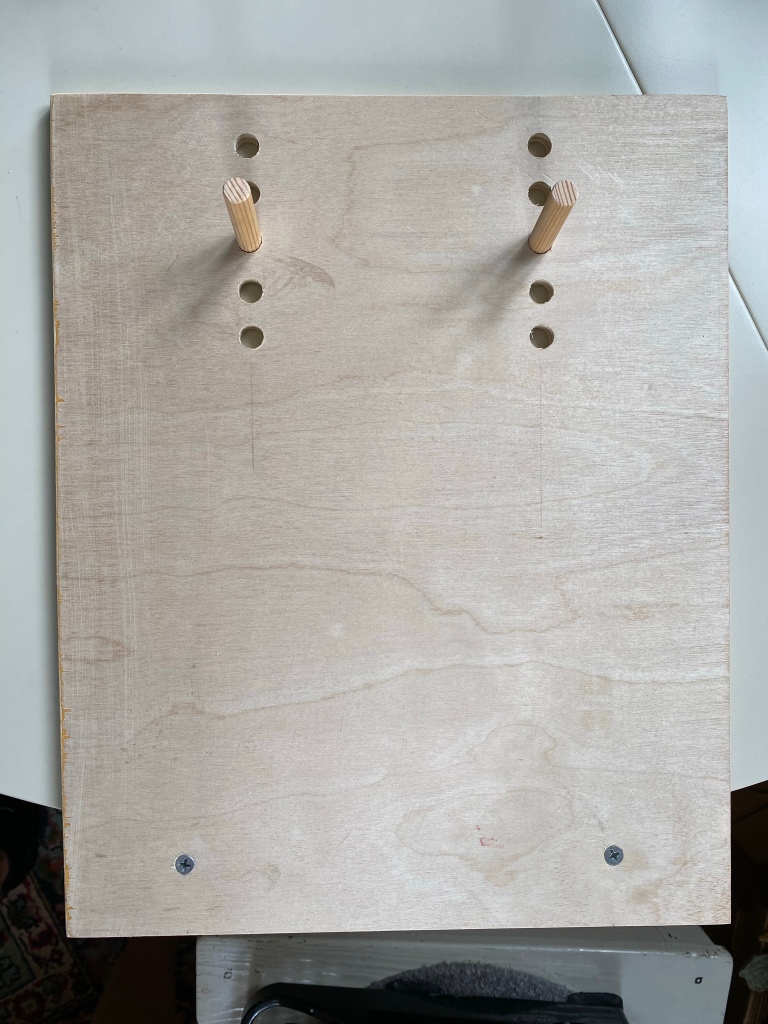

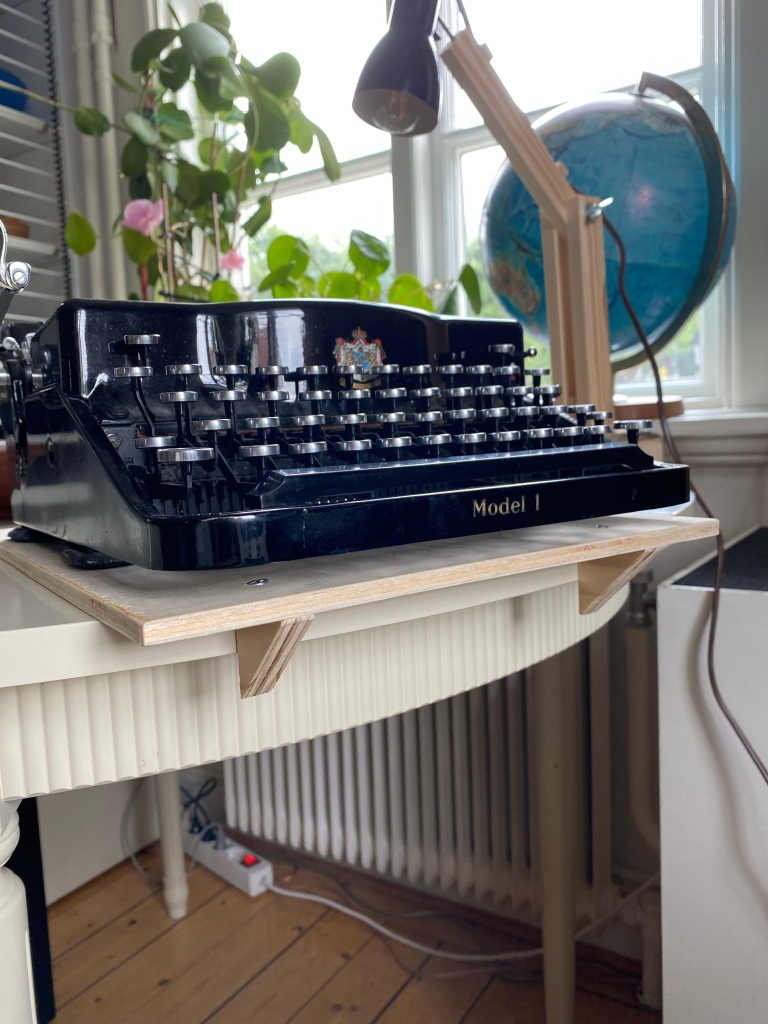
I don’t know why it took me so long but I finally got around to put my TypeHelper together. A small effort – big help. No more typewriters skating around!
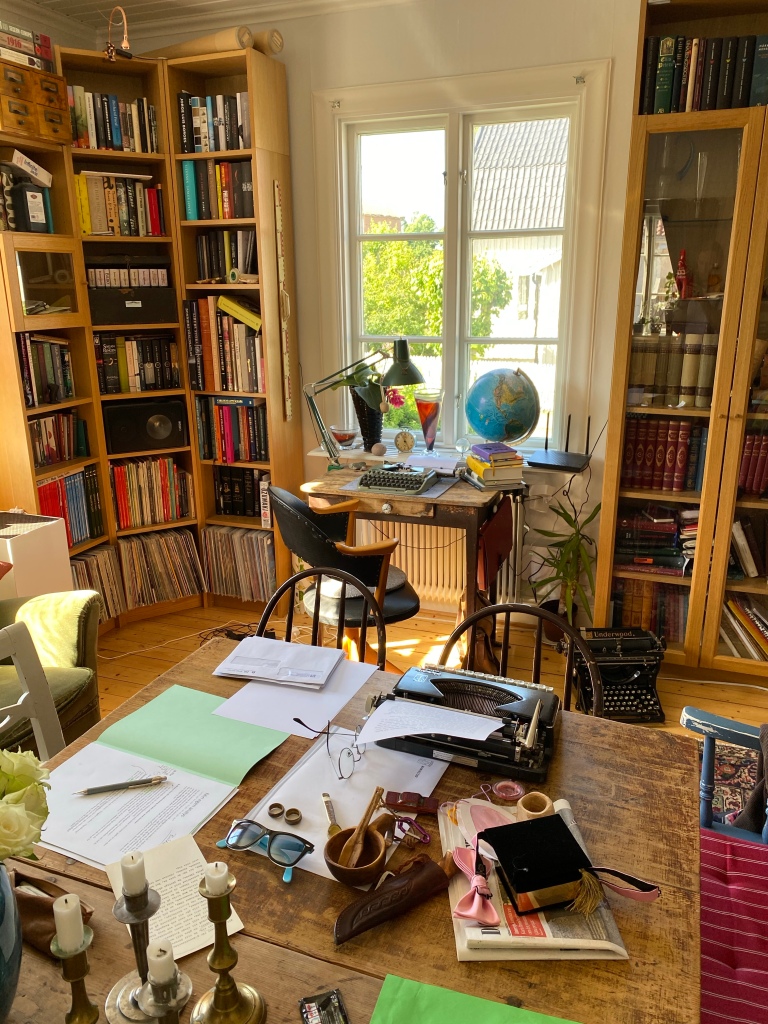

These versatile companions allow a quick change of scenery if the writer is willing. I’ve been been analyzing different aspects of my teaching 19/20…
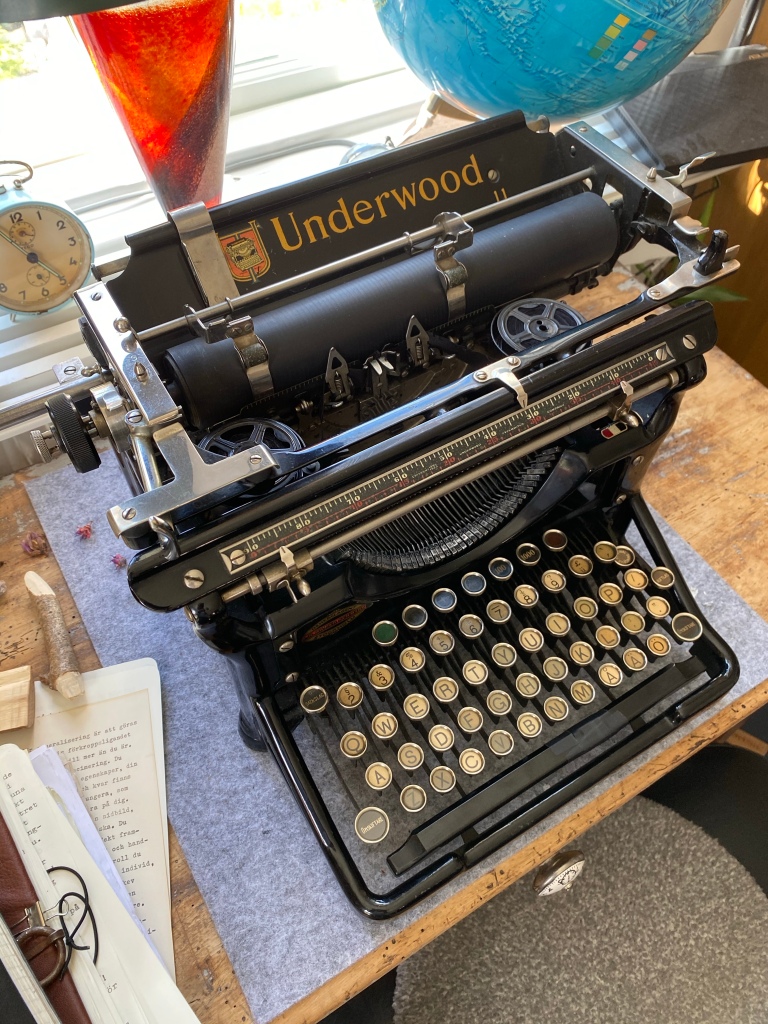
This fellow has been sitting on my desk at work for the past few months, taking up a fair amount of space… I finally got around to take it home this week. Had I not built up somewhat of a queer reputation involving typewriters this Underwood would have found it’s way to the junkyard. A colleague of mine was emptying his parent’s house and didn’t know what to do with a petite machine like this, other than getting rid of it. I’m glad he asked me before throwing it away. I guess this is what happens to a considerable amount of typewriters; they seem obsolete to the untrained eye. This is sad, thinking of how much joy they bring to people if they get the chance. This Underwood surprised me, kind of the way Dostoyevsky did, it seems old considering the looks (ok, it IS old…) but it acts nothing like an aged piece of work. Instead it’s eager to pin your thoughts down, to dress them in that beloved ink. It’s fast and responsive. Nothing like an aged, well, let’s say computer…

Infinite jest – a tennis-allegory, where the sum of passing lines of words between footnotes and in the footnotes as well, serve as images of the type of serve or response correlating to the sum; the higher the sum the higher (probably) or at least slower the arch the ball describes. This is made real with the reader’s actions of bouncing between the text or narrative itself and the appendix (these constituting the whole – the game and set – while being a part of the narrative, contributing with fact and depth, much like the way(s) a ball is returned over the net). Lets say twelve lines pass between two footnotes, that’s maybe a slow ball and that the footnote consists of two lines – that’s a fast return ball. The dance of the text and the notes form the complexity of the game being played. Does this make any sense at all? I’m obviously not Harold Bloom but all men have the right to reflect over their reading.
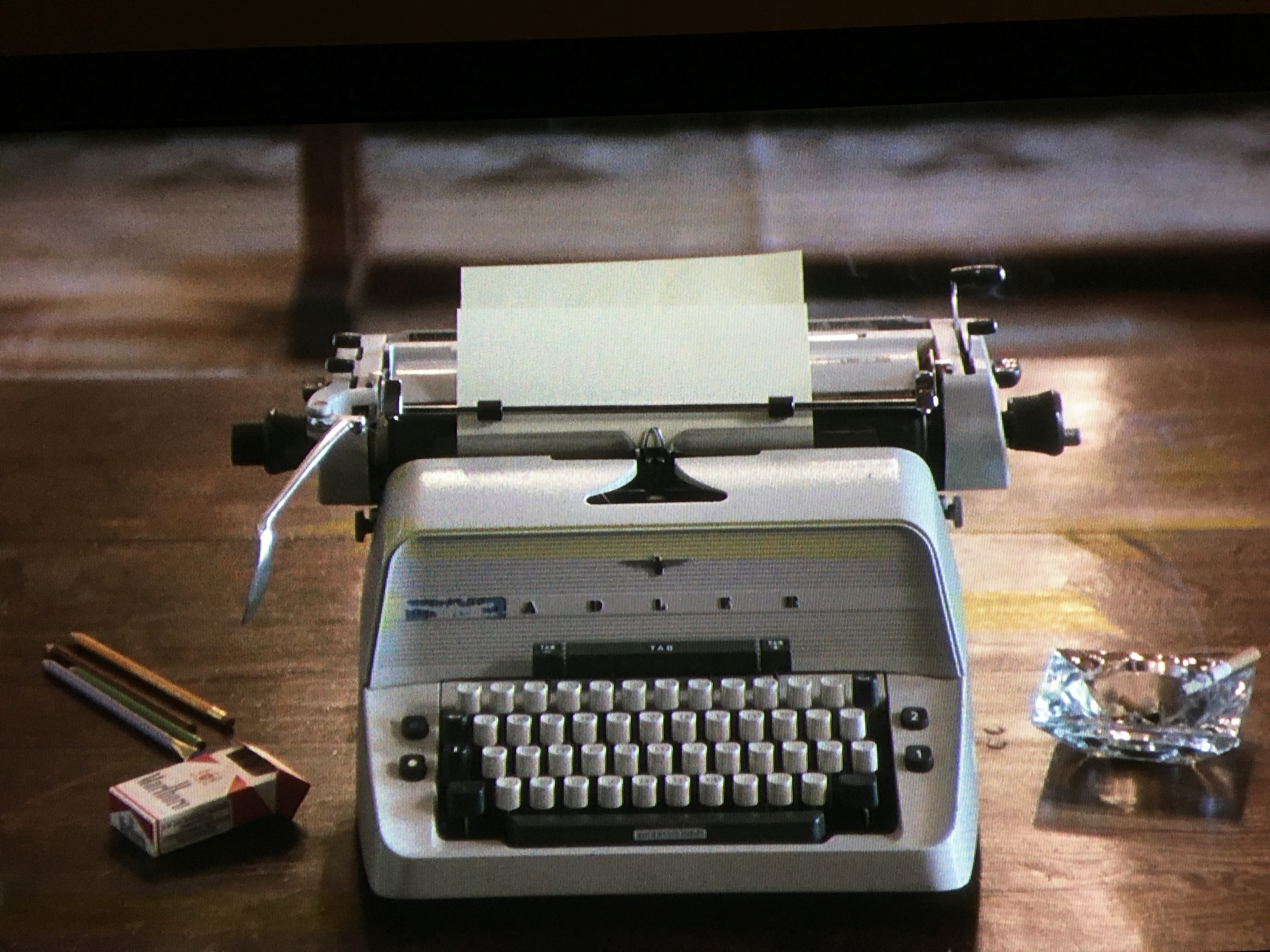 I love typewriters and I love to type, but I would NOT want to be the one punching these keys… This movie is just bad news from frame one. Pure art.
I love typewriters and I love to type, but I would NOT want to be the one punching these keys… This movie is just bad news from frame one. Pure art.